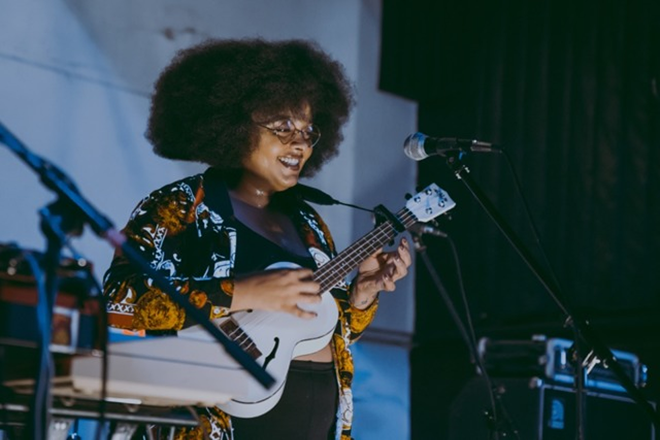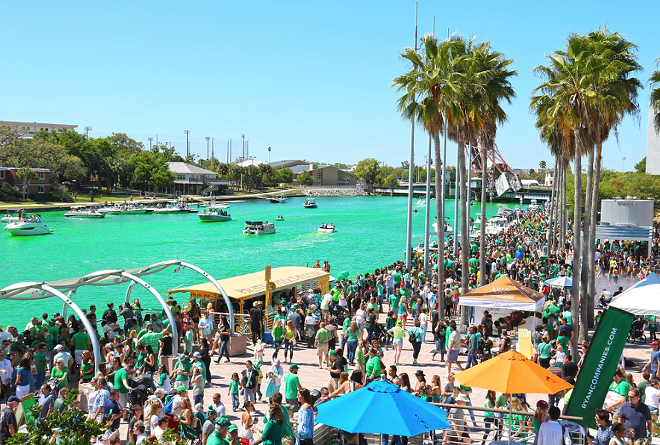click to enlarge 
Photo by Ben Montgomery
Survivors of Florida’s Dozier School for Boys prepare to speak at the State Capitol on Feb. 6, 2024.
“I would talk about the beatings,” the lawyer said.
“I would talk about the paddle,” he said. “I would talk about the claustrophobia.”
The old men sat around a long table in an office building a block from the Florida Capitol on Tuesday, reaching for ways to summarize a shared childhood nightmare that crept into the rest of their lives and still haunts them a half century later.
The statements they would deliver later to lawmakers on two separate committees – one in the Senate, one in the House – had to be brief, but powerful. They might only get one shot at convincing legislators to forward a bill that would help ease their anguish with a lump-sum payment, likely of $50,000 or more each.
When they were boys, they were victimized—beaten, threatened, experimented upon, molested—by state employees while confined at the Florida School for Boys in Marianna in the 1950s and ‘60s. That’s the same school where forensic anthropologists found 20 undocumented graves around a small cemetery on campus.
The state closed the school in 2011 and formally apologized in 2017, but “sorry” was a thin comfort to men who blame Florida for their broken marriages, sleepless nights and festering anger.
Now, though, after years of false starts, lawmakers are closer than ever to passing a bill meant to make amends. The former wards were invited to speak.
Three would testify before the Senate’s committee on government oversight and accountability. Two would speak the next day to the House’s judiciary committee.
Each would be allotted just two minutes.
“It’s hard to cram 60 years into two minutes,” vented Jim DeNyke, who spent 18 months at the rural school in the mid-1960s. Will people in suits and ties and houndstooth jackets know what it’s like to try to drink yourself to death to end your internal strife? he wondered.
They needed to get this right.
One ally warned them not to use the word “reparations” when addressing lawmakers, but the definition fits.
The bill would provide a one-time payment to any living former ward held at the Florida School for Boys—later called Dozier School for Boys—or the Okeechobee School for Boys between 1940-1975 who suffered mental, physical or sexual abuse at the hands of school personnel.
How much? No one knows yet. Lawmakers have floated several ideas, like awarding $50,000 to each victim, or giving each an equal share of $40 million.
The cost to the state is hard to calculate because no one is sure how many victims there are; more than 500 men have claimed to be victims in the past 15 years, but many of them have since died.
The men themselves have a hard time calculating what that childhood trauma has cost them. Nobody at the table was willing to proffer a number, but no one is eager to say $50,000 covers it.
“You can’t put a price on what we endured as children and dealt with all of our adult lives,” DeNyke said and the rest nodded. Their wives and daughters nodded, too.
The lawyer lobbying on their behalf, Troy Rafferty of the Pensacola personal injury firm Levin, Papantonio, Rafferty, told them not to worry about the money right now.
“I know, quite frankly, it’s not going to be enough,” Rafferty said. “I will tell you this: The wheels of justice don’t move quickly, and right now we’re in a sprint to get those wheels turning.”
“You can’t put a price on what we endured as children and dealt with all of our adult lives.”
Any compensation bill would be historic. While a scholarship related to the 1920 Ocoee Massacre was created in the same vein, experts in civil rights law can point to just one similar package in state history: nearly 30 years ago, then-Gov. Lawton Chiles signed a bill compensating survivors of the 1923 Rosewood race massacre $1.5 million, plus more to cover property loss and to establish a scholarship.
“We will be thankful for whatever the state hands out,” said soft-spoken Charlie Fudge, president of a group called the White House Boys, named after the building in which boys were beaten bloody by a man wielding a weighted leather strap.
Bryant Middleton was ready. The retired Army Ranger with a Purple Heart would tell lawmakers he’d go back to Vietnam before he’d go back to the Dozier school.
Richard Huntly was ready. He’d tell them how, at age 11, men stripped him from his mother’s arms and put him in a field in Jackson County with two options: work, or a beating.
Charlie Fudge would tell them about his anger and his three marriages and how on the third day at Dozier he took 31 licks from Mr. Hatton that he can still sometimes feel.
All of them had a story. Gene Luker remembered the school psychologist watching the boys take showers in the dorms. Johnny Lee Gaddy could talk about the human hand he saw in the pig slop. John Bell remembers the cottage mates holding him under a scalding shower, payback for ratting on a perverted staff member.
When they’d filled out speaker forms, they filed down the street under a bleached-blue sky and down into the basement of the Capitol. Some lawmakers greeted them apprehensively. Others hugged their necks.
“It gets to the core of me when I hear your stories,” Sen. Tracy Davis told them. “I feel like every year we get closer and closer.”
By the time it was over, both committees had voted unanimously to send the bills forward. Things could still go wrong, but the men said it felt like a step toward healing.
click to enlarge 
James ‘Harley’ De Nyke addresses a Senate Committee at the State Capitol on Feb. 6, 2024.
Subscribe to Creative Loafing newsletters.
Follow us: Apple News | Google News | NewsBreak | Reddit | Instagram | Facebook | Twitter | Or sign up for our RSS Feed








